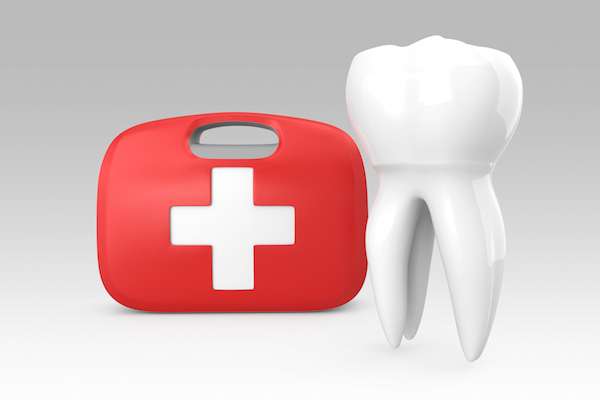Why You Should Avoid the ER for Emergency Dental Care
 Patients who are dealing with severe dental issues may think they should go to the ER for emergency dental care. This, however, is often ill-advised, as it may not be helpful in providing the proper treatments needed and can result in other problems arising.
Patients who are dealing with severe dental issues may think they should go to the ER for emergency dental care. This, however, is often ill-advised, as it may not be helpful in providing the proper treatments needed and can result in other problems arising.
Why emergency dental care isn’t a job for the emergency room
The following are a couple of reasons why patients should not go to an emergency room to try to receive dental care.
1. Limited treatment options
Emergency room doctors are often unable to provide much help for patients who are in need of emergency dental care. A dentist is the only professional who has the training to perform procedures such as pulling teeth or filling cavities. It is highly unlikely for an emergency room to have a dentist available on call. ER physicians are only able to prescribe painkillers to temporarily numb the pain and antibiotics to treat any infection that may be present. Neither of these solutions are a permanent fix to an emergent issue.
2. Astronomical costs
Many patients are unable to afford insurance and therefore cannot go to the dentist for routine cleanings and exams. This can result in those with issues such as pain, abscesses, severe toothaches and bleeding gums to ignore the problem and forego immediate dental care until it eventually becomes a serious and unbearable emergency. A visit to the emergency room is extraordinarily costly and typically results in a large bill and a referral to a dentist for treatment. A dental visit would typically cost less than a visit to an ER and allow for more targeted treatment of the problem.
How to avoid the need for emergency care
There are a few simple solutions for patients to follow to avoid emergency dental issues. Patients should practice proper dental hygiene procedures, such as brushing and flossing teeth twice a day, to preclude any complications from arising. Preventative care is also important; regular exams can catch dental problems quickly to stop them from turning into emergencies.
Patients should never ignore any pain. It is the body’s way of saying something is wrong, and ignoring such an issue can cause additional problems and more pain in the future. Those who are experiencing tooth or gum pain should contact a dentist as soon as possible. Waiting for too long can result in further issues that are likely to require more involved treatments.
Check out what others are saying about our dental services on Google: Emergency Dental Care in Bellevue, WA.
Conclusion
For many oral-health related issues, going to an emergency room for dental care is not advisable. Due to issues such as high costs and limited treatment options, patients needing emergency dental care should instead schedule a visit with a dentist as soon as possible. It is also important for patients to avoid the need for emergency care by practicing proper oral hygiene as well as scheduling routine exams. Preventative care can help avoid a lot of pain and dental issues as well as save a considerable amount of time and money.
Request an appointment or call Artisan Dental at 425-454-2005 for an appointment in our Bellevue office.
Related Posts
A toothache can be mild, moderate, or severe. Persistent discomfort or pain in the mouth is the first sign that there is an infection, cavity, or injury in the affected tooth. This is when you must see your general dentist right away. Here are the details about seeing a dental care professional about a toothache.Constant…
A dental emergency can occur in many forms. Some emergencies are more urgent than others, which means the timeliness of the steps you take following a dental injury will affect the treatment outcome. A dental emergency can affect any part of the oral cavity, including the gums, soft tissues, jaw and teeth.When someone experiences a…
Considering a smile makeover and not sure where to start? Read on to learn more. Many people avoid smiling due to dental imperfections. A smile makeover may be the answer. A dentist can improve your smile with cosmetic procedures like teeth whitening, bonding, and veneers. The right professional for the treatment is the key to…









